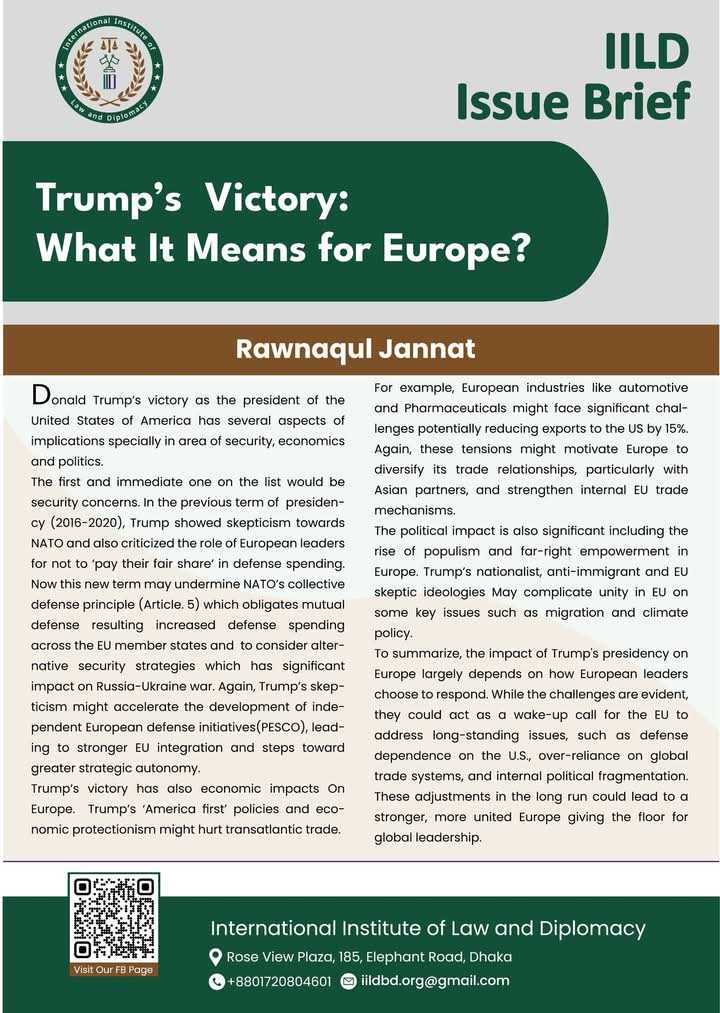
Trump’s Victory: What It Means for Europe?
Donald Trump’s
victory as the president of the United States of America has several aspects of
implications specially in area of security, economics and politics.
The first and immediate one on the list would
be security concerns. In the previous term of
presidency (2016-2020), Trump showed skepticism towards NATO and also
criticized the role of European leaders for not to ‘pay their fair share’ in
defense spending. Now this new term may undermine NATO’s collective defense
principle (Article. 5) which obligates mutual defense resulting increased defense
spending across the EU member states and
to consider alternative security strategies which has significant impact
on Russia-Ukraine war. Again, Trump’s skepticism might accelerate the development
of independent European defense initiatives(PESCO) ,leading to stronger EU
integration and steps toward greater strategic autonomy.
Trump’s
victory has also economic impacts On Europe. Trump’s ‘America first’ policies and economic
protectionism might hurt transatlantic trade. For example, European industries
like automotive and Pharmaceuticals might face significant challenges
potentially reducing exports to the US by 15%. Again, these tensions might motivate
Europe to diversify its trade relationships, particularly with Asian partners,
and strengthen internal EU trade mechanisms.
The
political impact is also significant including the rise of populism and
far-right empowerment in Europe. Trump’s nationalist, anti-immigrant and EU
skeptic ideologies May complicate unity in EU on some key issues such as
migration and climate policy.
To summarize, the impact of Trump's presidency on Europe largely depends on how European leaders choose to respond. While the challenges are evident, they could act as a wake-up call for the EU to address long-standing issues, such as defense dependence on the U.S., over-reliance on global trade systems, and internal political fragmentation. These adjustments in the long run could lead to a stronger, more united Europe giving the floor for global leadership.
Rawnaqul Jannat, IILD Intern
The views expressed in the writing are the author's own and do not necessarily reflect the opinions of International Institute of Law and Diplomacy (IILD)





Leave a reply